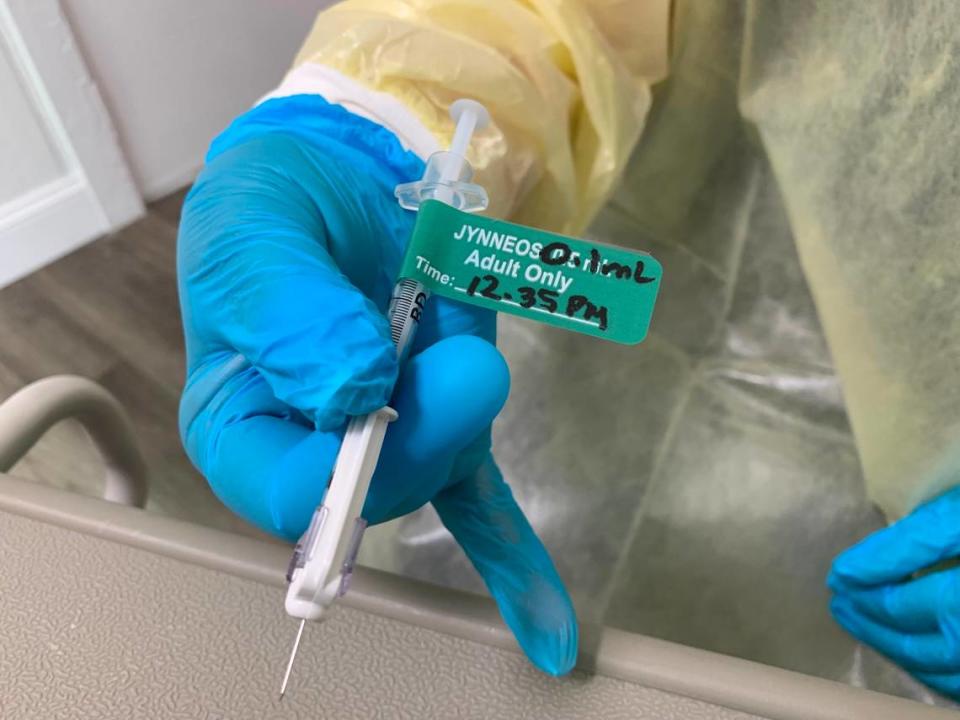Miami-Dade and Broward make up 73% of Florida’s monkeypox cases. Here’s what to know

As children head back to school, concern surrounding monkeypox — and vaccine changes — has grown.
Miami-Dade and Broward, with 513 and 446 cases respectively, make up about 73% of the 1,317 monkeypox cases statewide, said Dr. Ulyee Choe, statewide medical director for the Florida Department of Health, at a Tuesday press conference.
Here’s what you need to know as school starts and vaccine guidelines change.
How is current vaccine supply?
Vaccine supply remains limited, but Florida received a little under 65,000 vaccines on Tuesday, Choe said. Half were sent to the counties with the highest active cases, which include Miami-Dade and Broward.
“The health department is also working with community partners, especially those that serve high-risk groups, to provide the vaccine and develop the vaccine strategies and make the vaccine accessible to our community,” he said.
What are the monkeypox vaccine changes?
The Food and Drug Administration recommended last week that monkeypox vaccines be provided intradermally, or between skin layers, for those over 18, Choe said. The move will ration vaccine supply because a single vial can provide five doses.
The change was based mainly on a single study. But Choe said the study suggests that the intradermal injection method will offer a comparable antibody response.
“It’s not unique,” he said. “There are other vaccines given potentially intradermally... for example, the rabies vaccine in Germany, so it’s not a complete unique concept.”
Because the intradermal method needs less of the antigen to induce antibody response, the state can get more vaccines to vulnerable populations, Choe said. The change will help providers amid the vaccine supply issue.
“Providing the vaccines intradermally is a game changer,” he said.
Will monkeypox spread as kids go back to school?
The children who have contracted monkeypox have been exposed to the virus through household contacts, Choe said. A child under 5 and eight teenagers in Florida have tested positive for monkeypox.
READ MORE: A child in Florida has tested positive for monkeypox. What the state numbers show
The state bureau of epidemiology is monitoring age demographics for any changes, Choe said. But based on literature and current knowledge, monkeypox shouldn’t spread among school-aged children because the virus requires prolonged skin-to-skin contact.
“[Experts] don’t believe that schools, especially the K-12, are going to be big drivers of this,” he said.
The department of health has protocols in place with schools and universities and is ready to adapt to any shifts, Choe added.
“We have the school health program and [are] continuing to work with the districts statewide for any questions that they may have,” he said.
READ MORE: Should parents be concerned about monkeypox in schools? What experts say

 Yahoo Movies
Yahoo Movies 